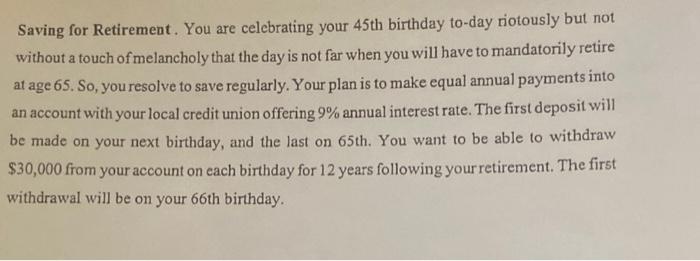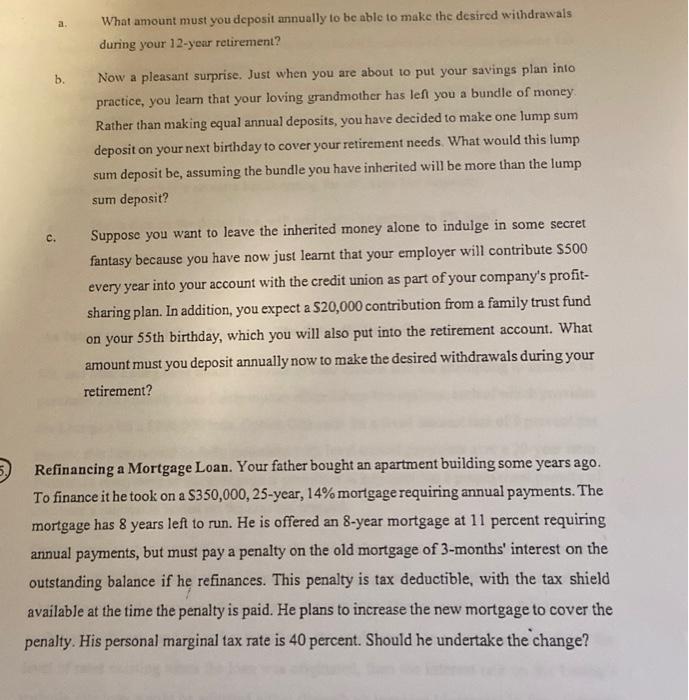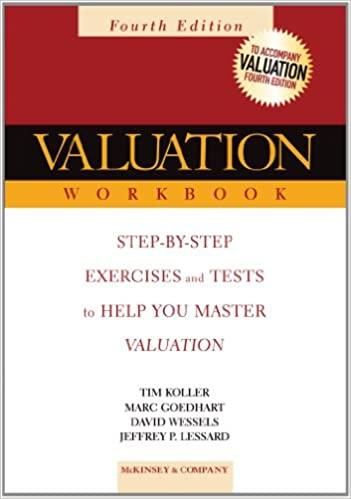Saving for Retirement. You are celebrating your 45 th birthday to-day riotously but not without a touch of melancholy that the day is not far when you will have to mandatorily retire at age 65. So, you resolve to save regularly. Your plan is to make equal annual payments into an account with your local credit union offering 9% annual interest rate. The first deposit will be made on your next birthday, and the last on 65 th. You want to be able to withdraw $30,000 from your account on each birthday for 12 years following your retirement. The first withdrawal will be on your 66 th birthday. during your 12-year retirement? b. Now a pleasant surprise. Just when you are about to put your savings plan into practice, you learn that your loving grandmother has lef you a bundle of money. Rather than making equal annual deposits, you have decided to make one lump sum deposit on your next birthday to cover your retirement needs. What would this lump sum deposit be, assuming the bundle you have inherited will be more than the lump sum deposit? c. Suppose you want to leave the inherited money alone to indulge in some secret fantasy because you have now just leamt that your employer will contribute $500 every year into your account with the credit union as part of your company's profitsharing plan. In addition, you expect a $20,000 contribution from a family trust fund on your 55 th birthday, which you will also put into the retirement account. What amount must you deposit annually now to make the desired withdrawals during your retirement? Refinancing a Mortgage Loan. Your father bought an apartment building some years ago. To finance it he took on a $350,000,25-year, 14% mortgage requiring annual payments. The mortgage has 8 years left to run. He is offered an 8-year mortgage at 11 percent requiring annual payments, but must pay a penalty on the old mortgage of 3 -months' interest on the outstanding balance if he refinances. This penalty is tax deductible, with the tax shield available at the time the penalty is paid. He plans to increase the new mortgage to cover the penalty. His personal marginal tax rate is 40 percent. Should he undertake the change








